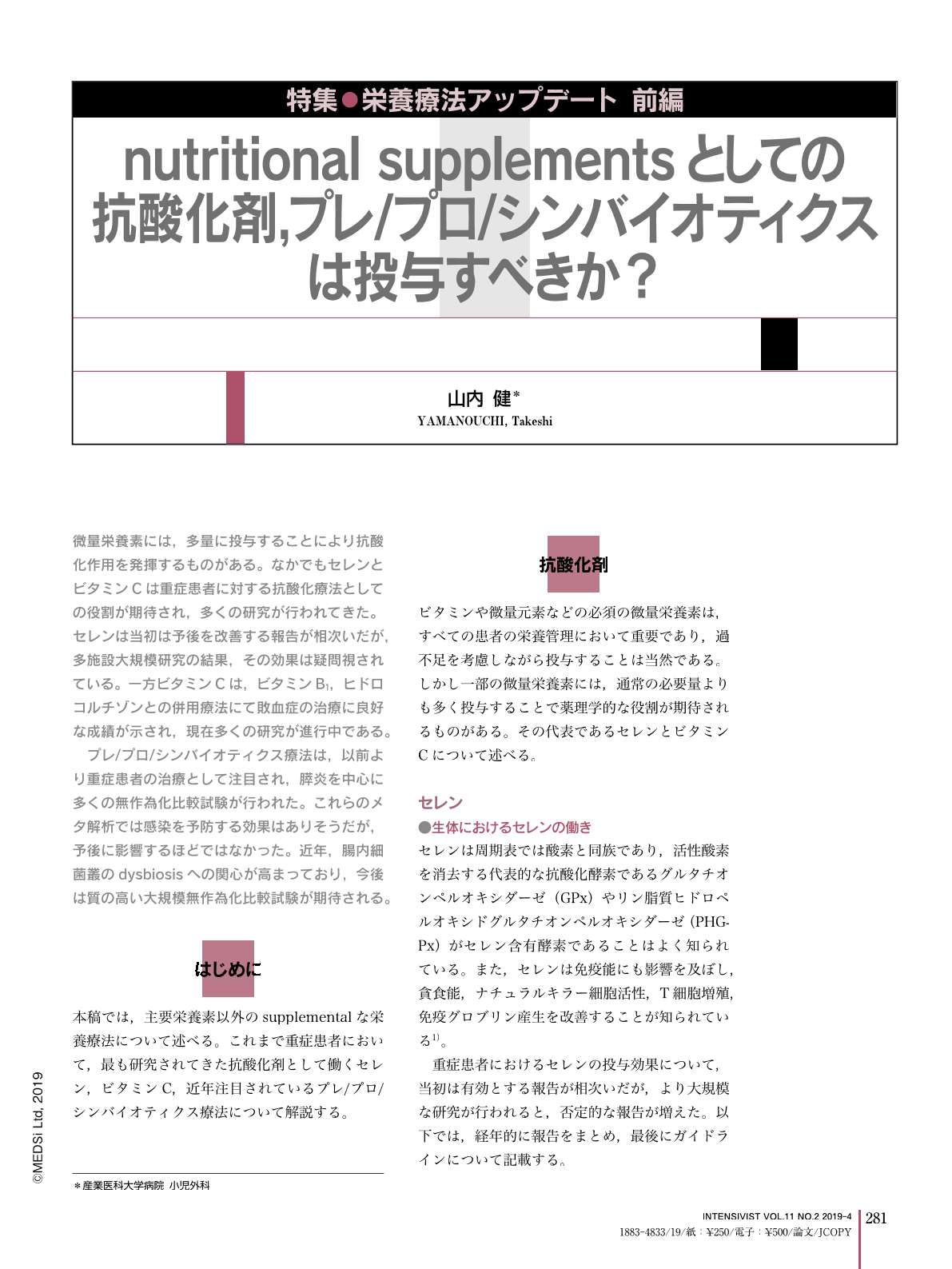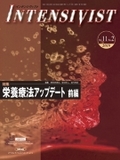Japanese
English
- 有料閲覧
- Abstract 文献概要
- 1ページ目 Look Inside
- 参考文献 Reference
微量栄養素には,多量に投与することにより抗酸化作用を発揮するものがある。なかでもセレンとビタミンCは重症患者に対する抗酸化療法としての役割が期待され,多くの研究が行われてきた。セレンは当初は予後を改善する報告が相次いだが,多施設大規模研究の結果,その効果は疑問視されている。一方ビタミンCは,ビタミンB1,ヒドロコルチゾンとの併用療法にて敗血症の治療に良好な成績が示され,現在多くの研究が進行中である。
プレ/プロ/シンバイオティクス療法は,以前より重症患者の治療として注目され,膵炎を中心に多くの無作為化比較試験が行われた。これらのメタ解析では感染を予防する効果はありそうだが,予後に影響するほどではなかった。近年,腸内細菌叢のdysbiosisへの関心が高まっており,今後は質の高い大規模無作為化比較試験が期待される。
Some micronutrients act as antioxidants if they are sufficiently supplemented. The effects of selenium and vitamin C on oxidative stress have been investigated in many critically ill patients. Selenium was initially reported to improve the prognosis of these patients, however large RCTs showed that its effect is limited. The effectiveness of vitamin C administered alone was controversial in critically ill patients, however the combination of vitamin C, thiamine and hydrocortisone has recently emerged as a potential adjunctive therapy in patients with sepsis. Several trials are ongoing to evaluate the impact of this combination therapy. There is a growing appreciation of the role of human microbiota in the pathophysiology of critical illness. A systematic review and meta-analysis demonstrated that pre-, pro- and synbiotic therapy significantly reduced the incidence of infectious complications in critically ill patients, however there was no reduction in mortality. Additional large-scale, adequately powered, well-designed clinical trials are needed to conclusively demonstrate the benefits of pre-, pro- and synbiotic therapy.

Copyright © 2019, MEDICAL SCIENCES INTERNATIONAL, LTD. All rights reserved.


